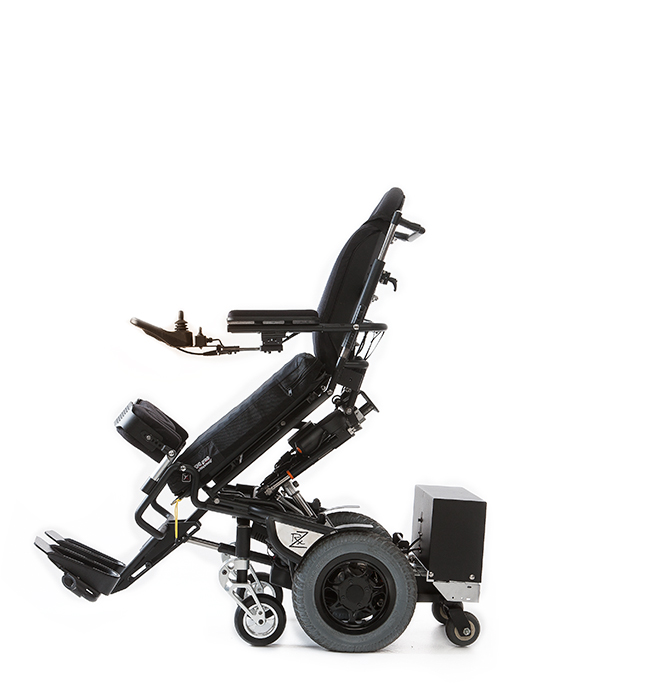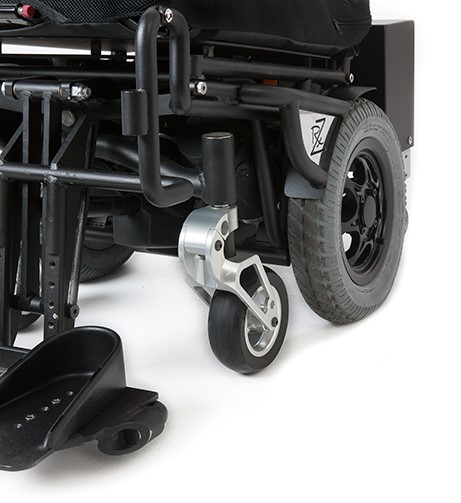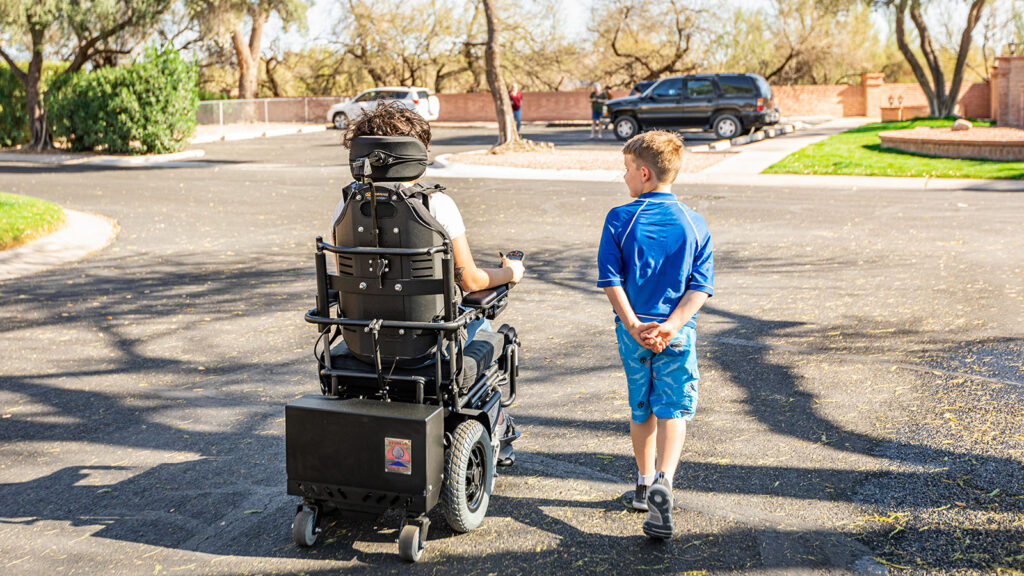The Role of Power Wheelchairs in Enhancing Quality of Life for Parkinson’s Patients

Parkinson’s disease is a progressive neurological disorder that primarily affects movement. Patients often experience tremors, stiffness, and slow motion, leading to difficulties in daily activities. Common mobility challenges include balancing, walking, and transitioning between standing and sitting. Mobility aids, such as power wheelchairs, have become essential for maintaining independence and safety. In short, these devices are crucial in enhancing the quality of life for Parkinson’s patients, allowing them to participate more fully in life despite their physical limitations. That makes understanding and utilizing these aids vital for those affected and their caregivers.
The Importance of Independence: Power Wheelchairs as a Solution
Power wheelchairs are transformative tools that foster independence for those with Parkinson’s disease. Unlike standard wheelchairs or walkers, power wheelchairs allow users to move freely without physical exertion, providing autonomy in various environments. Besides, the psychological uplift from this enhanced mobility is profound. Users often report feelings of liberation and renewed self-esteem as they can engage in previously difficult or impossible activities. Testimonials from users highlight significant improvements in daily life, with many expressing a newfound sense of control and normalcy. These aspects distinctly set power wheelchairs apart from other mobility aids, making them a preferred choice for many seeking to enhance their quality of life.
Technical Advancements in Power Wheelchairs
Power wheelchairs have embraced cutting-edge technology to better serve individuals with Parkinson’s. Recent advancements include:
- Intelligent Sensors: These sensors detect obstacles, reducing collision risks and enhancing user safety.
- Programmable Controls: Users can customize settings for speed and sensitivity, catering to the fluctuating needs of Parkinson’s patients.
- Adjustable Speed Controls: This feature allows users to modify speed in real time, accommodating varying indoor and outdoor conditions.
- Supportive Seating: Ergonomically designed seats support posture and reduce discomfort during prolonged use.

Integrating these technologies into power wheelchairs boosts physical support and significantly enhances maneuverability and comfort, directly improving the user’s lifestyle.
Enhancing Quality of Life for Parkinson’s Patients: Direct Benefits
Mobility aids such as power wheelchairs dramatically enhance the daily lives of Parkinson’s patients by offering them newfound freedom. These aids allow individuals to easily maintain their social connections, attending gatherings and events that would otherwise be inaccessible. The mental health benefits are equally significant. Depression and anxiety tend to be lower with people around. Similarly, increasing accessibility and participation in family and community activities fosters a sense of belonging and contributes to a more positive self-view. Power wheelchairs, therefore, are not just tools for physical mobility but gateways to enriched and more fulfilling lives.
Safety Features and Considerations for Parkinson’s Patients
Safety features in power wheelchairs are crucial for minimizing the risk associated with mobility for Parkinson’s patients. Hence, these enhancements are vital in preventing falls and injuries:
- Anti-tip Wheels: These provide stability and prevent the wheelchair from tipping over during abrupt turns or when navigating uneven surfaces.
- Automatic Braking Systems: Engage brakes automatically when the joystick is released, ensuring the chair remains stationary when not actively controlled.
- Adjustable Restraints: Seatbelts and harnesses can be adjusted to fit the user’s specific body requirements, offering additional security.

These customizable options cater to each individual’s unique needs, significantly reducing mobility risks and enhancing the quality of life for Parkinson’s patients.
Smooth Moves: Seniors Transitioning to a New Home with a Power Wheelchair
Meticulous preparation and adaptation are needed when moving to a new home with a power wheelchair, especially for seniors. Pre-move planning is important, focusing on selecting a home with essential wheelchair accessibility features such as wide doorways, available ramps, and accessible bathroom configurations. Seniors should employ ergonomic techniques during packing strategies to pack safely and label boxes clearly for easy access. Transportation tips include securely fastening the wheelchair in a moving vehicle and ensuring it’s accessible upon arrival.
Once in the new residence, setting up the new home involves organizing furniture and pathways to enhance mobility and reach essential items easily. Utilizing experienced moving services can help communicate specific needs effectively. The adjustment period may require emotional and physical acclimation, emphasizing integrating into the community and utilizing local resources. Safety checks in the new environment ensure the wheelchair functions optimally. Finally, connecting with community resources can offer continued support, particularly beneficial for wheelchair seniors, facilitating a smoother transition to their new setting.
Cost and Accessibility of Power Wheelchairs
The cost of power wheelchairs can be considerable, with factors such as technology, customization, and additional features influencing the final price. However, many patients find financial relief through insurance coverage and governmental or nonprofit subsidies, which can significantly reduce out-of-pocket expenses. Users and caregivers must explore these options to mitigate costs. In contrast, despite the initial financial investment, the long-term savings and benefits of using a power wheelchair are substantial. They include decreased dependence on personal care services and fewer hospital visits due to falls or mobility-related complications. Over time, these benefits contribute to cost savings and an improved quality of life, making the investment worthwhile.
Adaptation and Training to Use a Power Wheelchair
Using a power wheelchair effectively involves accessible training resources and an adaptation period. New users can benefit from structured training sessions that manufacturers or specialized health professionals offer. These sessions typically cover the operational mechanics of the chair, safety procedures, and troubleshooting tips. With this in mind, caregivers play a critical role in the adaptation process. They provide ongoing support, helping to reinforce the training at home and encouraging practice in various environments. Caregivers also assist in monitoring progress and adapting the use of the wheelchair to fit the user’s evolving needs better. Such comprehensive support is vital for a smooth and successful transition to a power wheelchair.
Looking Ahead
As we’ve discussed, power wheelchairs play a vital role in enhancing quality of life for Parkinson’s patients by offering greater independence and mobility. These advanced devices enable safer movement and foster participation in everyday activities, significantly uplifting the spirits and overall well-being of those with Parkinson’s – giving them a greater outlook for the future.
If you’d like to inquire about coverage options for a Redman Power Chair with a Parkinson’s diagnosis, please don’t hesitate to give us a call at 800-727-6684 or email us at sales@redmanpowerchair.com to setup a good time for us to discuss!

Recent Articles
- 5 Inspiring Audiobooks for Wheelchair Users
- Exploring the Psychological Impact of Mobility Assistance Devices
- The Role of Power Wheelchairs in Enhancing Quality of Life for Parkinson’s Patients
- Comparing Electric Power Standing Wheelchair and Electric Power Elevated Seat
- From Hospital to Home: Transitioning with a Power Chair
Categories
- Benefits
- Caregiving
- Cerebral Palsy
- CRT Power Wheelchair
- Disabilities
- Disabled Person Care
- Durable Medical Equipment
- Electric Wheelchairs
- FAQs
- General
- Healthy Eating
- Healthy Weight for Wheelchair Users
- Maintenance
- Medicare / Insurance
- Multiple Sclerosis
- Muscular Dystrophy
- News
- Parenting
- Power Chairs / Wheelchairs
- Press Releases
- Product Features
- Redman News
- Safety & Tech Tips
- Sleep Hygiene
- Spinal Cord Injury / Paralysis
- Standing Wheelchairs
- Teaching Compassion to Non-Disabled Children
- Testimonials
- Travel
- Travel Destination for Wheelchair Users
- Wheelchair Fitness
- Wheelchair on a Plane
- Wheelchair Summer Activities
- Wheelchair Travel Tips
- Wheelchair User Support Systems & Resources
